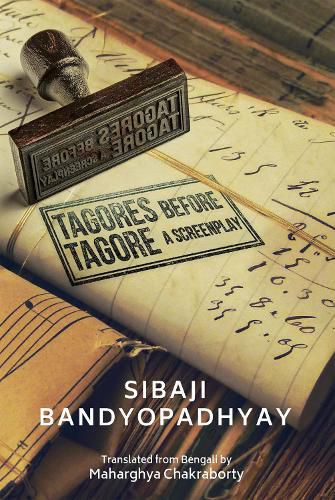Readings Newsletter
Become a Readings Member to make your shopping experience even easier.
Sign in or sign up for free!
You’re not far away from qualifying for FREE standard shipping within Australia
You’ve qualified for FREE standard shipping within Australia
The cart is loading…






When Dwarakanath Tagore, the entrepreneur hailed as India’s first ‘bourgeois’, died on 1 August 1846, Jorasanko found itself rattled by a series of upheavals. In each of these episodes, the chief player was his son-and Rabindranath Tagore’s father-Debendranath Tagore. He was a social reformer who founded the Brahmo Dharma. Yet, despite his deeply spiritual nature, he dabbled in crass materialistic matters. Drawing upon Debendranath’s opposing sentiments, Tagores Before Tagore narrates a historical period crucial to the making of indigenous modernity.
Scripted at the insistence of the famed filmmaker Rituparno Ghosh, this screenplay, based on true events, chronicles the tumultuous happenings that shook Jorasanko between September 1846 and June 1860, following Dwarakanath’s sudden death. Tales of bankruptcy, litigations, deceit, and domestic squabbles abound; and through these tales emerges a rich cultural history of nineteenth-century Bengal.
$9.00 standard shipping within Australia
FREE standard shipping within Australia for orders over $100.00
Express & International shipping calculated at checkout
When Dwarakanath Tagore, the entrepreneur hailed as India’s first ‘bourgeois’, died on 1 August 1846, Jorasanko found itself rattled by a series of upheavals. In each of these episodes, the chief player was his son-and Rabindranath Tagore’s father-Debendranath Tagore. He was a social reformer who founded the Brahmo Dharma. Yet, despite his deeply spiritual nature, he dabbled in crass materialistic matters. Drawing upon Debendranath’s opposing sentiments, Tagores Before Tagore narrates a historical period crucial to the making of indigenous modernity.
Scripted at the insistence of the famed filmmaker Rituparno Ghosh, this screenplay, based on true events, chronicles the tumultuous happenings that shook Jorasanko between September 1846 and June 1860, following Dwarakanath’s sudden death. Tales of bankruptcy, litigations, deceit, and domestic squabbles abound; and through these tales emerges a rich cultural history of nineteenth-century Bengal.